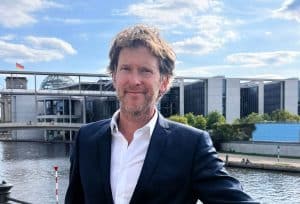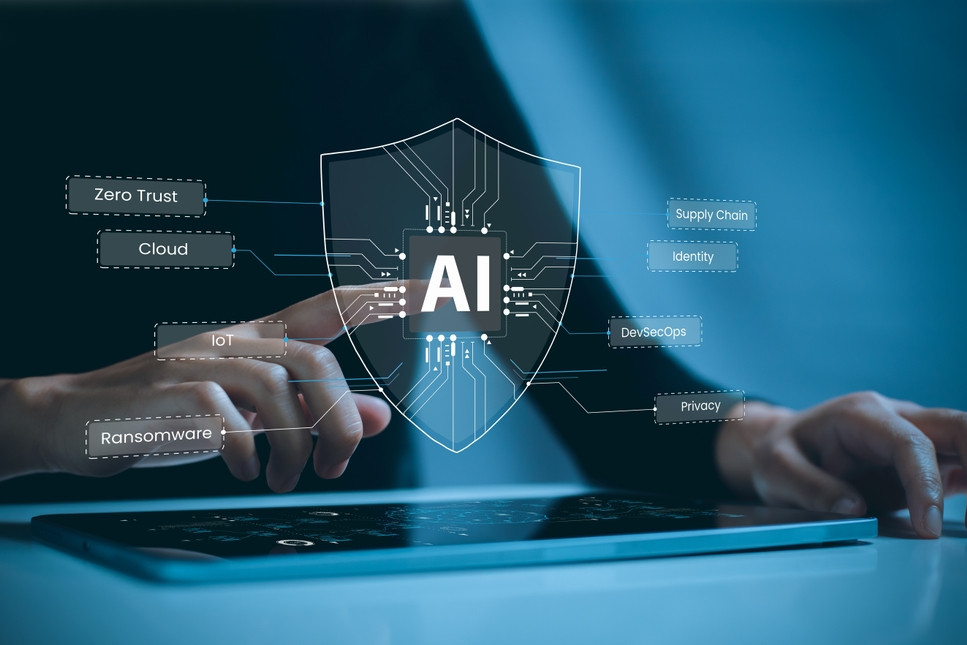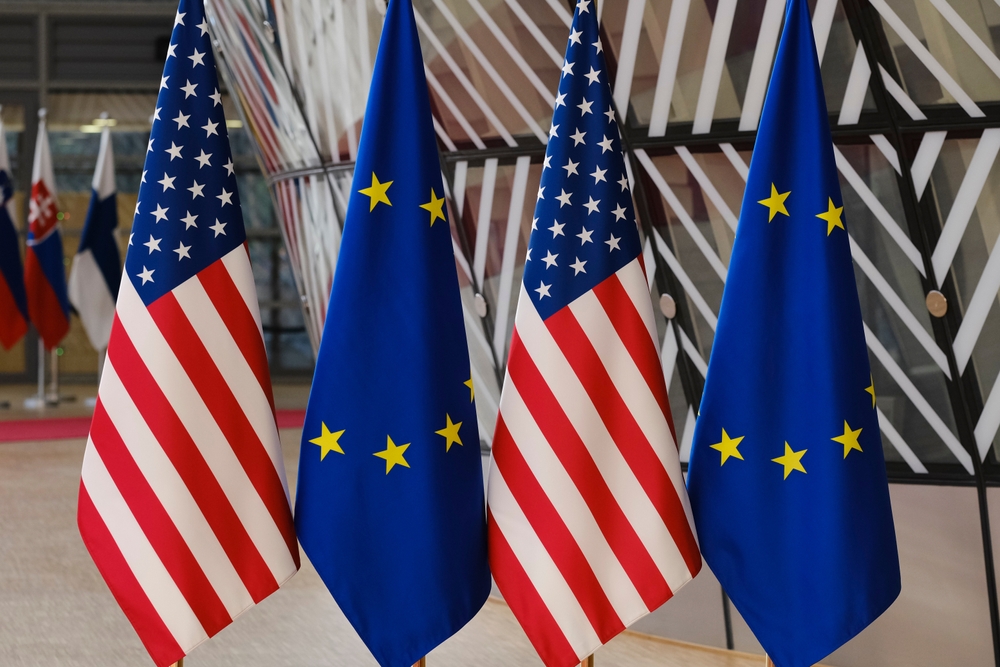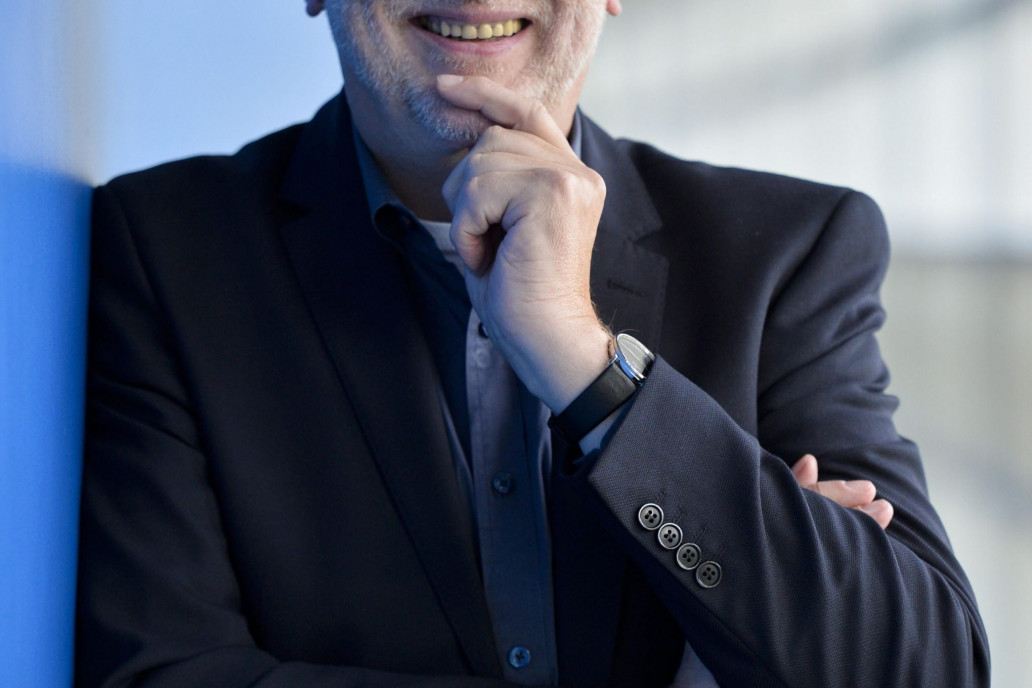Political expert Henning Vöpel warns: On 9 June, the European elections will decide the future of freedom and democracy in Europe. In the face of increasing threats from autocracies and populists, a strong democratic centre of Europe must preserve values – and change Europe at the same time.
Europe* has a choice: freedom or submission
(* Europe here means the idea of Europe in a comprehensive sense, elsewhere the European Union in a formal sense. In this definitional and semantic distinction lies perhaps the greatest task of politics: to unite Europe in its statehood and morality).
2024 is the election year. Around half the world’s population will be able to vote, including people in the US and Europe. But 2024 is also the year when democracy is under pressure around the world. Hardly a day goes by without an appeal to vote in the European elections on 9 June. And in fact, there are exactly two decisions that really „count“ on that day, regardless of party political preferences.
- Firstly, to vote at all in order to set an example for Europe.
- And secondly, not to fall in with the extremists in order to strengthen the democratic centre. Because both Europe and democracy are under greater threat than at any time since the Second World War, the catastrophe of which taught us the two most important lessons about commitment to Europe and democracy.
However, the geopolitical and social conditions of the present are once again reminiscent of the Weimar Republic, which gave rise to this catastrophe, and which must serve as a warning to us to avert what was averted by too few at that time. Europe and democracy may sometimes be difficult and exhausting. But for both, it is only when they are no longer there that we will know what they mean. Without Europe, China’s geopolitical influence and Russia’s neo-imperialist threats would be far greater; without democracy, we would be even more vulnerable to ideologies and disinformation. Life would be less free – not in an abstract sense, but in everyday life.
But it is also clear that mere declarations and incantations of the kind now heard everywhere are not enough. Europe and democracy depend on the promise of better prospects for people. That promise needs to be renewed to win people back to Europe and democracy. But too much bureaucracy undermines people’s identification with Europe, too much ideology undermines free debate in democracy. A stronger Europe and a more resilient democracy can only be achieved with more freedom, because that must be its strength, not its weakness.
Europe’s identity and heritage under threat
Europe could die, said French President Emmanuel Macron in his second speech at the Sorbonne in Paris, and he repeated this recently during his visit to Germany. What may sound overly pathetic is by no means an exaggeration. Europe as an idea is dead the moment it loses its freedom. Willy Brandt once said that one thing is even more important than peace, and that is freedom. For peace at the price of freedom would be submission to the enemies of freedom.
The upcoming European elections are so historically significant because the legacy of history and the identity of Europe are threatened in three ways and need to be defended: peace in Europe by the aggression of autocracies, prosperity in Europe by the rise of global protectionism, and liberal democracy in Europe by ideology, populism and division. Significantly, these three objectives were at the heart of the founding of the European Union – Europe as a peace project, Europe as an economic area and Europe as a model of freedom. The defence and continuation of this legacy is the most important task and responsibility of European politics today.
European elections take place at an „angry moment“ in history
We are living in a time when anything can happen again, including things that were previously thought to be out of the question. Jews are once again being openly insulted and attacked, Nazi slogans are being shouted in public without hesitation and a caliphate is being called for at authorised demonstrations, all in a year in which we are celebrating the 75th anniversary of the Basic Law. The pandemic and the war have had a lasting effect, making many people resigned to their fate and oblivious to history. Social media do the rest: they sow hatred, make people angry and seducible.
In a recent interview, the writer Salman Rushdie said that history was experiencing an „angry moment“. And he spoke of a „war of stories“, a war of interpretations that overlap to form „incompatible realities“. The incompatibility of different „truths“ is the death of liberal democracy. In dictatorships, this incompatibility is resolved – there is only one truth. Contradiction is no longer tolerated.
Europe faces difficult political conditions
In this challenging situation, Europe is facing difficult political conditions. The fringe, manipulated and supported by China and Russia, is gaining ground and power in the hybrid war against democracy. The influence of China and Russia is already reaching into parliaments. And the world could collapse in a moment of instability if the war in Ukraine turns in Russia’s favour, the world’s largest democracy slides into civil war in the US, and China thinks this is a good time to attack Taiwan. What will happen to Europe if these dynamics take on an uncontrolled life of their own? If Europe weakens itself, it will become vulnerable – and, as Emmanuel Macron had the courage to say, it could even die.
This makes it all the more important to strengthen Europe’s democratic centre now. The current Commission, led by President Ursula von der Leyen, is supported in the European Parliament by a broad coalition of Christian Democrats (EPP), Social Democrats (S&P), Liberals (Renew) and Greens (EFA). Having secured her position in the last elections with a relatively green programme, von der Leyen is now seeking the support of right-wing conservatives (ECR) and far-right parties (ID), in particular Italian Prime Minister Giorgia Meloni (of the Fratelli d’Italia, often described as „post-fascist“).
After the Green Deal that brought her to power five years ago, she is now making a political offer to the right-wing and ultra-right parties – the very parties that sit in the European Parliament but see the solution not in Europe but in a retreat to the national level. It is a risky manoeuvre on the part of the Commission President because, firstly, it damages her credibility and, secondly, it may not even work in the end. Former ECB president and Italian prime minister Mario Draghi is rumoured to have ambitions.
A programme for sovereignty and competitiveness
A few days after the elections – note the timing – this very Mario Draghi will present a report on how the European economy, which has been suffering from weak growth for years, can regain competitiveness. The EU has been falling behind for many years. A turnaround is urgently needed. In times of geopolitical fragmentation, strengthening competitiveness has a lot to do with Europe’s sovereignty, technological leadership and sovereignty over critical infrastructure. Draghi’s report will therefore also be a kind of political agenda for the next Commission.
If you want to boil down the upcoming European elections to a single question, it is this: Is more Europe or less Europe the answer to the historic challenges? The answer is more Europe. But the answer is also: a different Europe.
This is because the scale of the challenges is beyond the power of any single nation state, and the nature of the challenges requires different priorities. Together, the member states form a market of relevant size, together they can create defence capabilities, together they can develop breakthrough innovations.
The right-wing populist parties want less Europe. Under these conditions, however, less Europe will ultimately lead to the death of Europe. There is no way back, but there is a better way forward. That is what this European election is about.
You can find the German version of this article on FOCUS Online.

Zuvor war er Senior Economist am HWWI und zeichnete verantwortlich für die Forschungsbereiche Konjunktur und Weltwirtschaft. Seine Forschungs- und Themenschwerpunkte sind Konjunkturanalyse, Geld- und Währungspolitik, Finanzmärkte und Digitalökonomie.
Copyright Header Picture: Copyright Header Picture: randy-tarampi
Könnte Sie auch interessieren
2. Februar 2026


